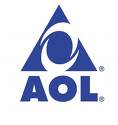ITV and BBC in race to launch digital media players
Mark Sweney
Wednesday October 11, 2006
MediaGuardian.co.uk
ITV is going head-to-head with the BBC in the race to launch their digital media players, both of which are due to appear early next year.
ITV has appointed US digital agency Schematic to design a next-generation video-on-demand ITV.com website as well as its own digital media player.
ITV and the BBC are now both aiming to launch their digital media players by the end of March next year. Channel 4 is planning to have its video-on-demand service, incorporating digital media player technology, up and running before the end of this year.
The BBC and Ofcom yesterday extended the deadline for the BBC iPlayer's market impact and public value testing, amid industry criticism of the the original schedule.
The British Interactive Publishers Association, which represents media owners including News International, Emap, Trinity Mirror, IPC, Sky Interactive, the Guardian and Associated New Media, has criticised such a tight assessment deadline over the very first BBC products to go through the process.
"We were notified of the submission timelines and given about a month to respond. The iPlayer has potentially huge ramifications for the commercial sector and therefore needs to be thoroughly impact tested. Equally important is the process itself as other impact assessments on BBC products and services will be benchmarked against the outcome of the current consultation."
Originally, submissions to Ofcom and the BBC for their respective assessments were due at the end of this week with the results due to be published in mid-December.
However, more information about the iPlayer has been requested and so the timetable for the completion of Ofcom's market impact assessment has been put back to Jan 19.
The adjusted timeline gives the public and commercial companies almost two months to submit their views. Overall a final outcome of the review, by Ofcom and the BBC, will be revealed at the end of March - almost three months later than originally scheduled.
ITV is aiming to launch its new web "portal" sometime in the first quarter next year.
The broadband-enabled, on-demand service will enable viewers to watch simulcasts of live ITV shows as well as operating a "catch-up" option to see missed programmes.
ITV also intends to offer exclusive web-only content and a wide range of archive material.
"Broadband is the next mass-market platform for delivery of both television to viewers and services to advertisers," said Jane Marshall, the commercial development director of ITV Consumer.
"With some of the UK's most popular content we are confident ITV has an incredibly strong consumer proposition online."
I think this could be very profitable for both BBC and ITV. This could be the next big thing in terms of gadgets, they both have strong ideas. It depends on which one will appeal to the right target audience for this type of product. This could also be a problem as both companies could lose lots of money if the product is not successful.
Wednesday October 11, 2006
MediaGuardian.co.uk
ITV is going head-to-head with the BBC in the race to launch their digital media players, both of which are due to appear early next year.
ITV has appointed US digital agency Schematic to design a next-generation video-on-demand ITV.com website as well as its own digital media player.
ITV and the BBC are now both aiming to launch their digital media players by the end of March next year. Channel 4 is planning to have its video-on-demand service, incorporating digital media player technology, up and running before the end of this year.
The BBC and Ofcom yesterday extended the deadline for the BBC iPlayer's market impact and public value testing, amid industry criticism of the the original schedule.
The British Interactive Publishers Association, which represents media owners including News International, Emap, Trinity Mirror, IPC, Sky Interactive, the Guardian and Associated New Media, has criticised such a tight assessment deadline over the very first BBC products to go through the process.
"We were notified of the submission timelines and given about a month to respond. The iPlayer has potentially huge ramifications for the commercial sector and therefore needs to be thoroughly impact tested. Equally important is the process itself as other impact assessments on BBC products and services will be benchmarked against the outcome of the current consultation."
Originally, submissions to Ofcom and the BBC for their respective assessments were due at the end of this week with the results due to be published in mid-December.
However, more information about the iPlayer has been requested and so the timetable for the completion of Ofcom's market impact assessment has been put back to Jan 19.
The adjusted timeline gives the public and commercial companies almost two months to submit their views. Overall a final outcome of the review, by Ofcom and the BBC, will be revealed at the end of March - almost three months later than originally scheduled.
ITV is aiming to launch its new web "portal" sometime in the first quarter next year.
The broadband-enabled, on-demand service will enable viewers to watch simulcasts of live ITV shows as well as operating a "catch-up" option to see missed programmes.
ITV also intends to offer exclusive web-only content and a wide range of archive material.
"Broadband is the next mass-market platform for delivery of both television to viewers and services to advertisers," said Jane Marshall, the commercial development director of ITV Consumer.
"With some of the UK's most popular content we are confident ITV has an incredibly strong consumer proposition online."
I think this could be very profitable for both BBC and ITV. This could be the next big thing in terms of gadgets, they both have strong ideas. It depends on which one will appeal to the right target audience for this type of product. This could also be a problem as both companies could lose lots of money if the product is not successful.



